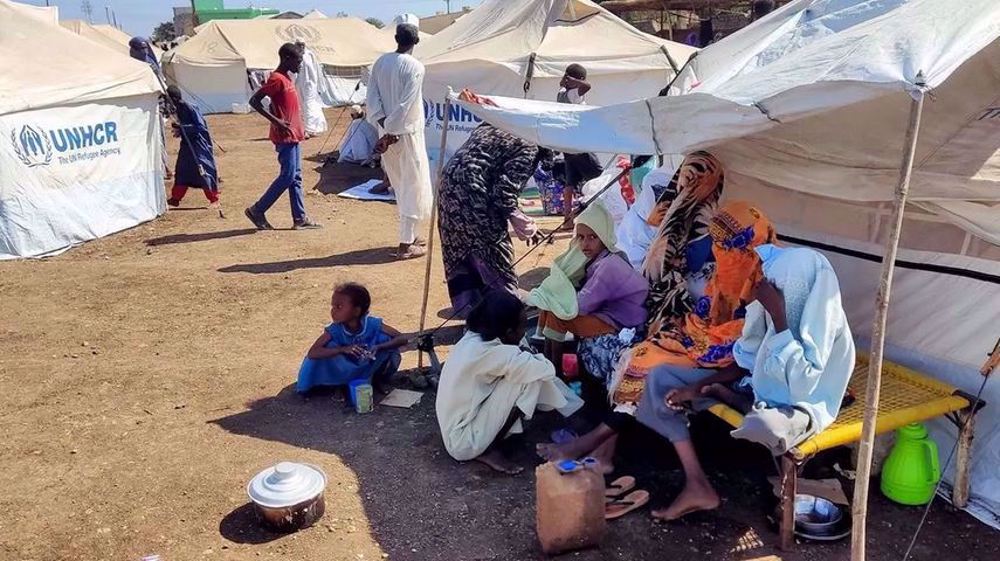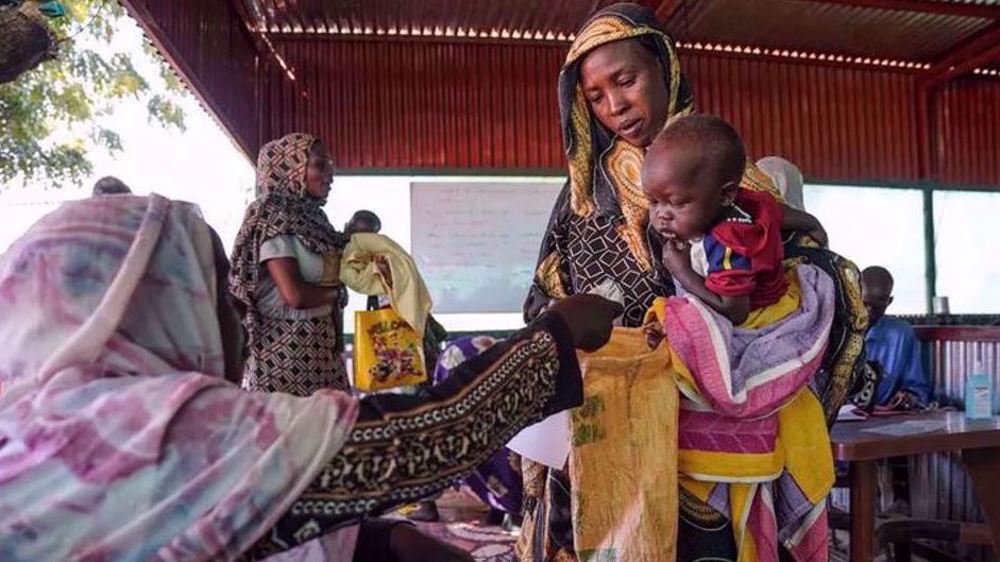Sudanese march on presidential palace as protests linger
Sudanese police have fired tear gas at protesters marching towards the presidential palace in the capital during a demonstration against the 29-year rule of President Omar al-Bashir.
Protest organizers had called for a march on the presidential palace in the capital Khartoum on Thursday, along with simultaneous demonstrations in several other cities.
Witnesses said that hundreds of demonstrators gathered in central Khartoum and began their march but riot police quickly confronted them with tear gas.
The protesters held anti-government placards and chanted slogans such as "Peace, justice, freedom" and "Revolution is the choice of the people."
They also demanded the resignation of President al-Bashir, who took power in a coup in 1989.
Authorities had reinforced security forces in the capital's key areas ahead of the planned march.
Several army vehicles mounted with machine guns were stationed outside the palace. Security personnel, many in plainclothes, were stationed across the downtown area of Khartoum and along the expected route of Thursday's march.
Sudan has been gripped by mass protests triggered by rising prices and shortages of food and fuel since December 19. The public display of anger later escalated into calls for Bashir to go.
In Khartoum, authorities say 24 people have died in the protests, but human rights group have put the death toll higher.
There have been calls by human rights groups for authorities in Sudan to investigate the use of lethal force by security forces against protesters.
Last week, UK-based rights group Amnesty International said that more than 40 people had been killed and more than 1,000 arrested. The New York-based Human Rights Watch (HRW) said the dead included children and medical staff.
UN rights chief decries use of 'excessive force'
The UN High Commissioner for Human Rights Michelle Bachelet, in a statement on Thursday, strongly denounced Sudan's "repressive response" to demonstrations, including the use of live ammunition against protesters.
"I am very concerned about reports of excessive use of force, including live ammunition, by Sudanese State Security Forces during large-scale demonstrations in various parts of the country since December 19," the statement read.

The UN rights chief also called on Sudan's government to protect the protesters' right to freedom of expression and peaceful assembly, regardless of their political affiliations. She warned that “a repressive response can only worsen grievances."
"The government needs to ensure that security forces handle protests in line with the country's international human rights obligations by facilitating and protecting the right to peaceful assembly," Bachelet said.
She called on the government to ensure the immediate release of all those who had been arbitrarily detained. "I urge the authorities to work to resolve this tense situation through dialogue, and call on all sides to refrain from the use of violence."
Bachelet also urged the fact-finding committees created by the government and Sudan's National Commission of Human Rights to conduct their investigations "in a prompt, thorough and transparent manner, with a view to accountability."
And she said her office remained ready to deploy a team to Sudan to help advise the authorities on how to ensure they act in accordance with the country's international human rights obligations.
The UN rights office has also decried reports that security forces had followed some protesters into the Omdurman Hospital and "fired tear gas and live ammunition inside the premises of the hospital."
The protests come as Sudan’s economy has stagnated for most of Bashir’s rule. He has also failed to keep peace in the religiously and ethnically diverse country, losing three-quarters of Sudan’s oil wealth when South Sudan seceded in 2011 following a referendum.
Inflation is currently running at 70 percent and the Sudanese pound has plunged in value. Shortages of bread and fuel have hit several cities.
IRGC: Iran makes great strides in air defense; real-world scenarios simulated in Natanz drills
VIDEO | Press TV's news headlines
VIDEO | Israeli military pulls out of southern Lebanese town of Naqura
Hamas slams Israeli regime's plan to annex Arab countries
Iran rejects Macron’s ‘baseless, contradictory’ remarks
VIDEO | Unyielding Resistance Axis
Palestine, Jordan slam map showing Arab lands as part of ‘greater Israel’
VIDEO | New York healthcare workers take a stand against genocide











 This makes it easy to access the Press TV website
This makes it easy to access the Press TV website